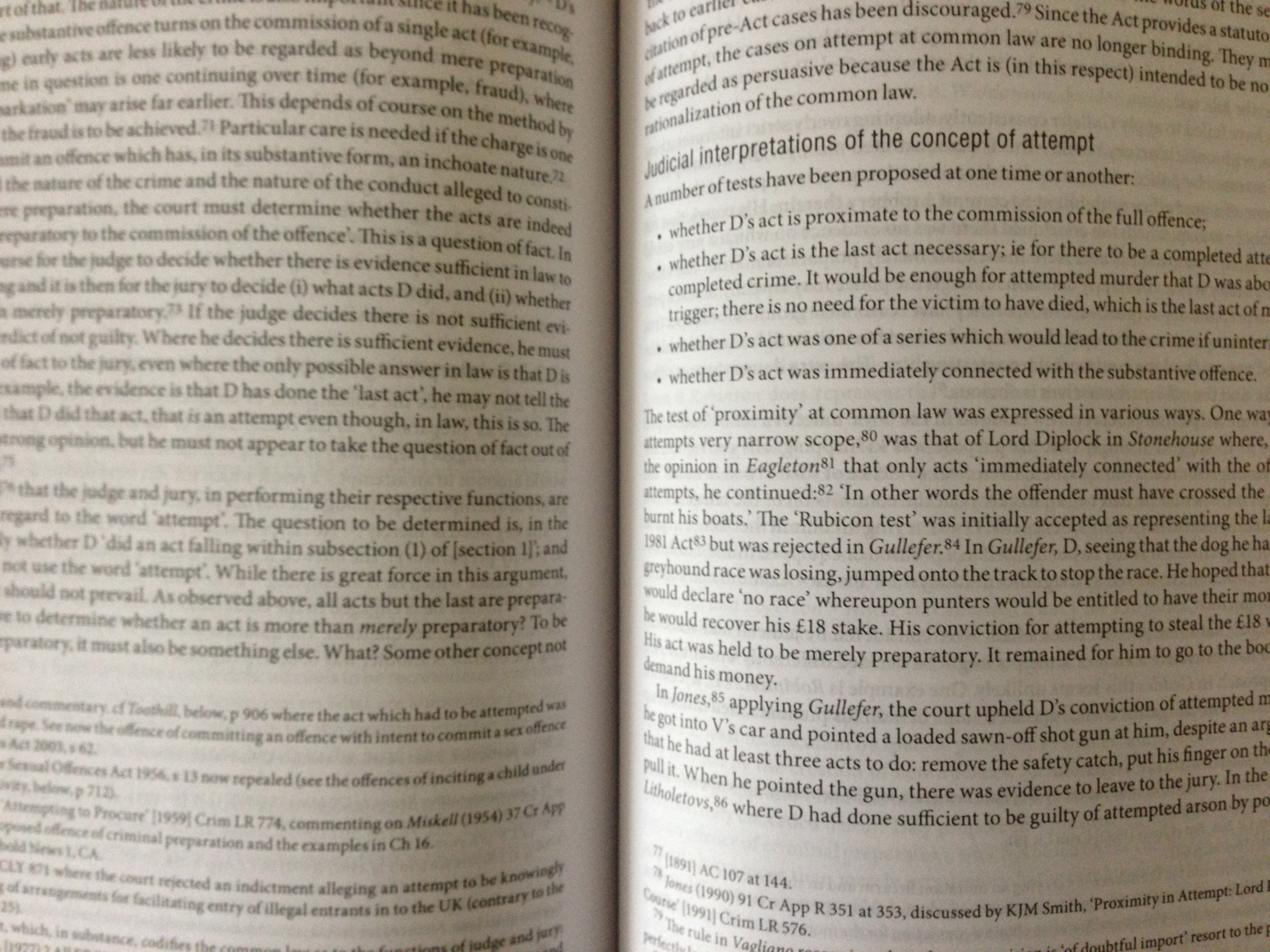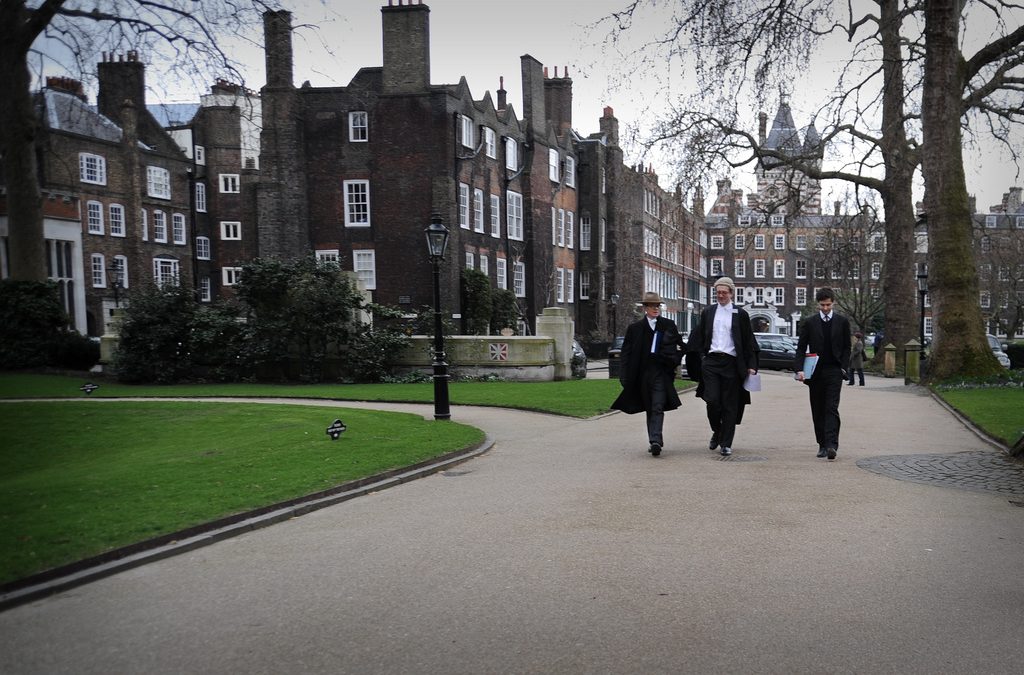
The Catholic Child Welfare Society and Vicarious Liability
December 14, 2012
Litigation Part 2 – Pre-trial
December 18, 2012This piece is aimed at helping prospective Bar Professional Training Course (BPTC) students through the application process and highlights the most important considerations and requirements along the way. I studied the BPTC in 2011–12 in London and, while I will draw on my experiences with my own provider, I hope to cover generalities applicable to all of the BPTC providers.
Hard facts
First, I strongly recommend you be 100 per cent sure that you want to pursue a career at the Bar before you begin any application. I’m sure you’ve heard this a million times before, but it really is an incredibly competitive career and the odds of getting pupillage are stacked highly against you. If you are not absolutely certain that you want to pursue a career at the Bar then I would suggest that you rethink spending a significant amount money on undertaking the Bar course.
For a rough idea of the figures: in the academic year 2009–10 there were 2,657 applicants for the BPTC, 1,793 enrollments, and approximately 1,432 successful completions of the course. In that same year, only 460 people began pupillage. [1]
Alongside these off-putting figures, once you have completed the course you only have five years to obtain pupillage before your BPTC qualification essentially expires. This hopefully demonstrates how sure you must be that this is the path you want to follow and just how much faith you need in yourself to achieve it in this time.
The course
The BPTC used to be known as the BVC (Bar Vocational Course) and is the vocational stage of training which must be undertaken by any budding barrister. It can follow directly on from a qualifying law degree or follow the GDL year for those students who have not undertaken a qualifying law degree.
As a very brief overview, the BPTC is made up of two main aspects: advocacy and paper-based (or procedural) skills. You will be on your feet and practising your speaking a lot, with many providers using video equipment to record your sessions in order to give you the best chance of assessing your own performance and improving over the year. You will also be learning all the requirements, rules and guidelines for the processes and paperwork that you will come across throughout your career as a barrister.
Each institution will also have its own set of optional modules, allowing you to focus your studies on two areas of interest. The modules on offer vary slightly between providers, so it is worth researching these as it may well be a deciding factor in your application.
Throughout your BPTC year you will have assessments on each topic and at the end of the course will get an overall grade of either Outstanding (average 85 per cent plus, with no failed modules), Very Competent (70-85 per cent, with a maximum of one module re-sat and passed on second attempt) or Competent (60-70 per cent). Below 60 per cent is classed as Not Competent — a fail.
The providers
There are nine providers of the BPTC course (much less, you will notice, than the number of institutions providing the LPC).
One of the key deciding factors for many people is the location of the providers. It is not strictly true that if you want to practise outside of London you should really study at a regional provider, or vice versa, but it may be an extra link to show you have a commitment to a particular area of the country.
As I want to practice in London eventually, I found that studying in London gave me the best access to opportunities and experiences that I might want to take on alongside my studies. This may be equally applicable for those who want to practice in other regions.
The London providers are BPP (Holborn), The College of Law (Bloomsbury), City Law School and Kaplan Law School.
The regional providers are Cardiff Law School, The University of West England, Nottingham Law School, Manchester Metropolitan University, Northumbria University, College of Law (Birmingham) and BPP (Leeds)
Where a provider has multiple locations, the course taught at each location will be identical. For example, those at BPP (Holborn) or BPP (Leeds) will undertake exactly the same course, as will those who attend College of Law (Birmingham) or College of Law (Leeds) and those who attend Nottingham Law School or Kaplan Law School.
I have heard from many chambers that the provider at which you study your BPTC will not be a factor in their decision for pupillage. Some chambers may have a mild preference or an interest in one particular provider for their own particular reason, but I’ve been reassured that it is incredibly unlikely to be a key factor in their decision. As mentioned above, it may simply help to demonstrate a link to the region in which you are applying. The key factor is, of course, the grade you get at the end of the course.
There are many other factors you can use to differentiate between the providers — cost, class size, location, hours of study (part time over two years or full time over a single year) — the list is endless. It is crucial to research each provider, visit any open days and get your head around exactly what the institutions offer and what is most favourable to you.
As a general rule, the London providers tend to be more expensive than those elsewhere and living costs also tend to be higher. It is worth considering this before applying and most provider websites should give an indication of the likely fees or at the least give the fees charged this year.
Application process
Applications for the course are conducted through a central system operated by the Bar Standards Board (BSB). For entry in Autumn 2013, the system opened on 5 November 2012 and will close at 2pm on 10 January 2013. It costs £40 to submit your application. However, this year there will be an additional cost associated with sitting the new Bar Course Aptitude Test (or BCAT), estimated to be less than £100.
The BSB sets a minimum requirement for entry as a 2:2 level degree and a pass on the GDL. Some providers, however, require you to have a 2:1 degree, or at least give preference to applicants with a 2:1, so it is certainly worth checking provider websites if you are borderline. The reason for this requirement for a 2:1 degree is that anyone with lower may well struggle to obtain pupillage in the long run. However, there are always exceptional cases and if you are unsure whether you will struggle to overcome a lower grade it might be worth speaking to the providers directly.
The application process is essentially one large form which you fill out in individual sections online:
Personal and academic details
These are all fairly simple, as you would imagine. This gives an idea of your biographical details (‘Bio data’) and your academic history (‘QLD’ and ‘Education’). Do not lie or stretch the truth – you are asked to prove your grades and other details further along in the process and lying here could certainly put an end to any prospective career at the Bar (not just your application for the course).
Further along in the form, a section called ‘Legal details’ asks about the jurisdiction you intend to practise in, your Inn status (i.e. if you are a member yet) and any previous attempts at the BPTC (or BVC as it was previously known). Also in this section, it makes reference to the BCAT – a new test which must be undertaken in Spring 2013 for those applying for 2013 entry to the course. For the application form, you are instructed to put ‘pending’ for the result of this test as applications are due before the test is taken.
Employment history and qualifications
You are limited to listing two past employers. Ensure that you pick those that are most relevant and make sure you demonstrate why they are relevant. Imagine you are telling your possible future Bar Course tutors or telling those at future chambers about this job and how you have benefited from it.
The Qualifications section refers to further professional qualifications and skills, including language and technical skills. It does say ‘relevant to this application’ and there is only one space for a further qualification, so be judicious; this may not be the place to mention your Award in Bartending. Also, you are provided with a range of language levels to choose from (basic, moderate, good, fluent) with up to three languages to include; while it is great to be able to put other languages on your form, be honest about the level of your ‘high school French’.
Supporting evidence
This is the largest part of the form and is where you have the most freedom to express your answers. It covers areas such as legal work experience, skills questions and the standard ‘why’ and ‘how’ questions. This section is where providers will look to understand more about the answers you’ve given and the personal history provided earlier in the form.
Make sure that you really think about your answers here – incoherent or badly worded answers may cost you points or even a place on the course. Ensure that you demonstrate a sound understanding of what you want to do in future and how everything you have achieved so far reflects or assists this.
Providers will most likely be looking for, amongst other things, how much legal work experience you have had so far to gauge your dedication to the course and your understanding of a career at the Bar. Be sure that you can illustrate this – if you have never done a mini pupillage or undertaken any kind of public speaking you may well struggle to demonstrate this commitment.
The ‘References’ section allows you two referees. I would recommend getting these organised sooner rather than later. Note that they are not interested in personal referees, only academic ones. It is best to use your most up to date references, especially if your undergraduate degree was some time ago.
Ranking the providers – ‘Application details’
In the application process you must rank the providers in order of preference. When doing so, multiple locations of a provider are classed as separate providers, for example BPP (Holborn) is listed separately from BPP (Leeds).
In the first instance only your top three choices will receive your application form. I would suggest that you do some research here – some providers will say from the outset that they will only consider those who place them first or second. Whilst this may not necessarily be true in the long run (I distinctly remember getting offers from my top three places), it is certainly not worth risking the loss of an offer by putting your ideal provider in third position.
Those providers ranked below third place will only be released in the second round of applications if you are unsuccessful in the first round.
Next steps
Before you submit your application form, make sure you proofread it more than once. Get someone else to proofread it. Proofread it backwards. Whatever you do, ensure that what you are submitting is a true reflection of your ability – it only takes one spelling mistake to instantly change the impression you create. My own provider, when approached, confirmed that spelling and other grammatical errors can lead to a serious deduction of points when assessing whether to make an offer to an applicant.
Your application form will be released to your top three ranked providers the day after applications close (11 January 2013), who will then begin to sift through them in order to make decisions on who should be made offers. The deadline for acceptance of first round offers is 3 April 2013, but offers may also be made before this time.
The process that providers follow when assessing who to offer a place to will differ from institution to institution and is therefore not something I can discuss in depth. However, it is clear that a well thought out, concise application form which demonstrates a commitment to the Bar and a strong understanding of what it entails stands the best chance of being successful.
Please note that you must be a member of one of the four Inns of Court by 31 May in the year you wish to begin the BPTC course, so make sure you check the deadlines and research the Inns well in advance of this.
Kaplan Law School and assessment days
Kaplan Law School is (as far as I am aware) the only provider which conducts an assessment day before making formal offers. They will conduct an initial paper sift and invite a number of applicants to the assessment day in February or March 2013; from this they will ascertain whether or not applicants have a real chance of successfully obtaining pupillage. I wouldn’t want to give away too much detail on what the assessment day entails, but as a general rule it will assess your advocacy skills, your ability to process information quickly and your writing skills. A poor performance on the day can lead to no offer being made and it should therefore be taken very seriously – even if you believe you have the best CV and application form out of the cohort you should do your best to prepare.
And finally…
Good luck! If you have any questions you are more than welcome to comment on this piece, or email me at emily.mcquilkin@thestudentlawyer.com.
[1] The Bar Council –View Website





